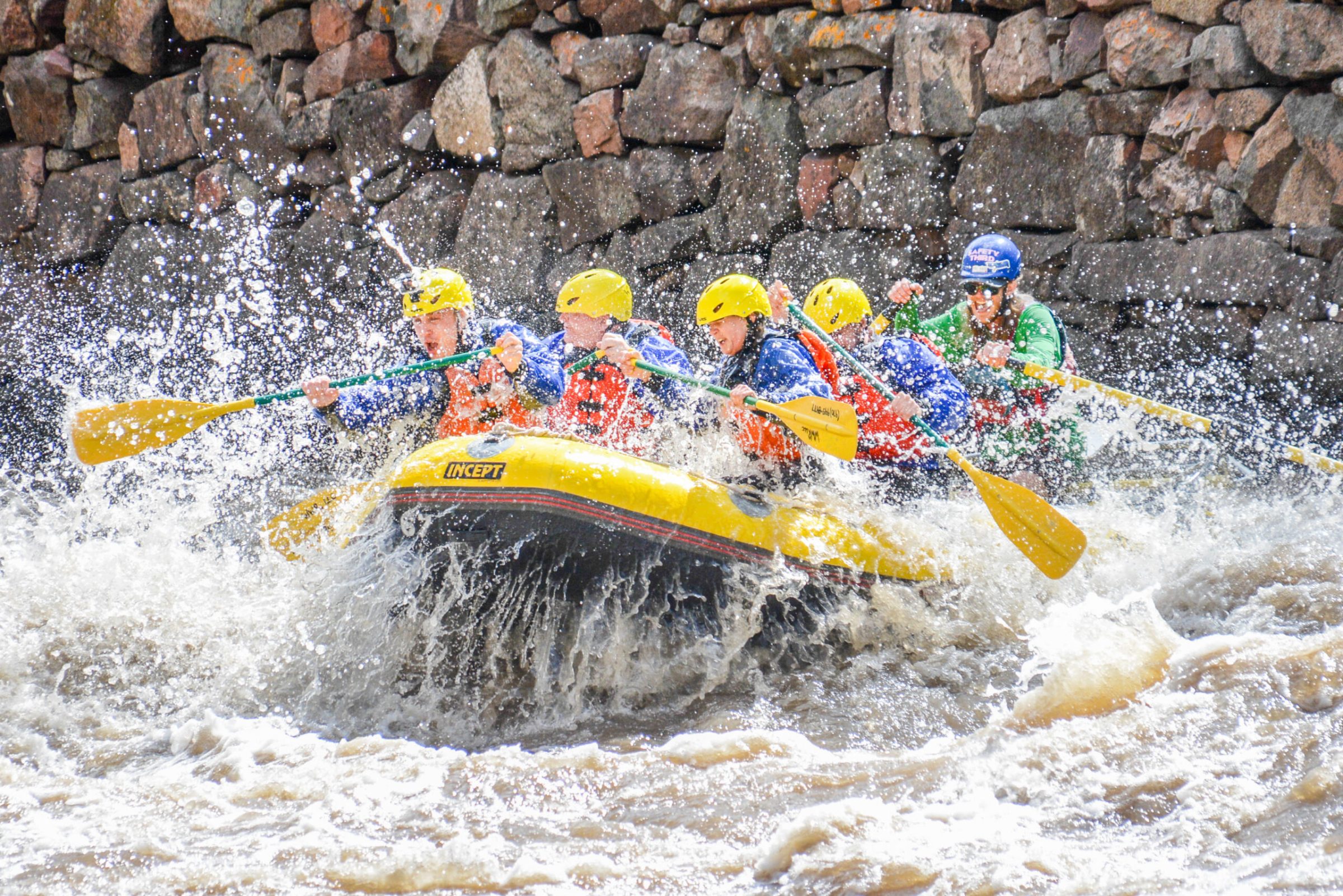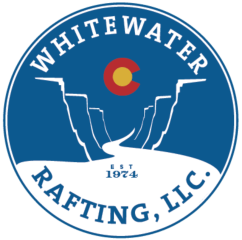15 Health Benefits of Whitewater Rafting

Whitewater rafting is an exciting way to explore nature. It’s also terrific exercise and offers quite a few benefits that can improve your health and overall lifestyle. It doesn’t matter if you’re raging wild Class IV and V rapids or gently floating downstream. Both can improve your physical and mental health. How can whitewater rafting make you feel better? Check out these 15 health benefits of whitewater rafting.
Fresh Air
First and foremost, you will be outdoors if you are whitewater rafting. That means lots of wonderful fresh air. On top of that, you’re likely to be in a remote, mountainous area free of big-city smog and pollution. Getting ample fresh air can help clear your mind, rejuvenate your body, and lift your spirits.
Sunshine
Whitewater rafting occurs during the late spring, summer, and early fall, so there’s lots of sunshine. And nothing can help your body feel better than a massive shot of Vitamin D from the sun. Multiple studies have shown that exercising outdoors is better for mental health than indoor activities. Some rafting adventures offer more sun than others, so if you are looking to soak in the rays, research before you go.
Reduce Stress
Whitewater rafting allows you to escape reality. The tranquility of nature makes it easier to relax and leave all your worries behind. Mainly when the river flows slowly. A good float trip can help put your mind at ease. Spending time amid nature and beautiful scenery can work wonders to reduce stress and help you see things differently.
Unplug from Tech
Another more recent health benefit is unplugging yourself from technology. Let’s say the Wi-Fi isn’t that strong in most spots known for their whitewater rafting. A rafting excursion is a perfect time to unplug from social media, texts, and email for a while. These days, complete isolation from the outside world is uncommon, so take this rare opportunity to live in the moment.

Cardio
Rafting can be strenuous and help build endurance. You need to sustain your paddling on the river as you maneuver obstacles and make your way downstream. It’s a fantastic cardio (aerobic) workout. If you do it regularly, rafting can help get your stamina and endurance to peak levels.
Strengthening Muscles
In addition to aerobic exercise, whitewater rafting is an excellent way to strengthen and build muscle. Making your way down the river will utilize various upper- and lower-body muscles. Paddling helps tone your shoulders, arms, and back, and you’ll use your hips, legs, and feet to keep you from jostling around in the raft. Remember, the more intense the river current, the more resistance you will encounter, requiring more strength and endurance from your muscles.
Improve Self-Esteem
Rafting gives you a feeling of accomplishment. Facing adverse conditions and overcoming them provides an increased sense of confidence. Going rafting can seem daunting, especially traversing heavier rapids like Class III or IV. It can be pretty intimidating to start rafting if you’ve never been rafting. However, through perseverance, you’ll overcome your fears and feel fantastic on the flip side. Once you master a few Class IV or V sections, you will be ready to take on all comers in your everyday life.
Teamwork
Rafting requires you to work as part of a team. Being a team member means equal participation, good communication, and sharp listening skills. Honing these skills on the river can reflect directly in your everyday life and improve your relationships and camaraderie with others. It’s amazing what you can accomplish when you are part of a successful team. As they say, “teamwork makes the dream work.”
Family Bonding
Whitewater rafting is an adventure activity you can do as a family that brings the whole family together. With no modern distractions like work or technology, families finally have time to socialize while working together to accomplish a unified goal. A family trip down the river is a great way to make memories that you can reminisce and laugh about for years to come.

Adrenaline Rush
Let’s face it: A good old-fashioned adrenaline rush is the primary reason many go whitewater rafting. It’s one of the most – if not the most – thrilling mountain adventures you can experience. Especially if you’re in Class III or IV rapids. The constant challenges of the river and the unknown can give you the adrenaline shot of a lifetime. Most beginning rafters mention the excitement and rush of going down the river. It can be addictive! But if you want to keep your heart rate a little lower, plenty of Class II and III rapids are more relaxed and scenic.
Helps Your Soul
Rafting provides a sense of adventure and being in Mother Nature can be therapeutic for your soul. It’s also a beautiful journey, both figuratively and literally. Most rivers with commercial rafting adventures are in scenic locations that offer the chance for you to experience your surroundings in a new way. Being on an adventure like rafting engages your mind, promotes a sense of exploration, and gives you a fresh perspective on various aspects of your life.
Mental Health
Rafting can be therapeutic and improve your overall mental health. Good mental health consists of various factors, many of which we outlined in this blog. With mental health, there’s no magic bullet or easy answer. Often, it’s a combination of many things that, when put together, make you feel stronger, more confident, and better about yourself.
Good For Kids
Studies have shown that whitewater rafting is beneficial to children. Kids as young as age 2 can raft more manageable sections. Most commercial rafting outings allow children as young as age 5. More intense sections require strong swimming skills and a minimum age of 13. Rafting helps build confidence, communication, teamwork, and self-esteem – just like it does for adults!
Helps ADHD
Whitewater rafting has been shown to help individuals suffering from Attention-Deficit Hyperactive Disorder (ADHD, formerly known as ADD). ADHD usually begins in childhood and can continue into adulthood. It can lead to low self-esteem, troubled relationships, and difficulties at school or work. Symptoms include inattention and hyperactivity.
Cures Sleep Disorders
Rafting can help those suffering from sleep disorders. Getting out in the sun and fresh air and experiencing a thrill like whitewater rafting can help you sleep at night. Exercise and an adrenaline rush can help you sleep like a baby!
